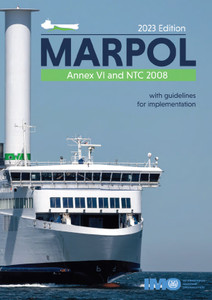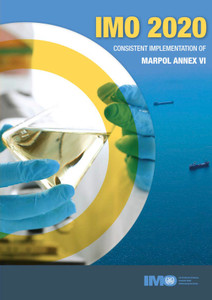
This publication contains:
- the 2017 Guidelines for the implementation of MARPOL Annex V (resolution MEPC.295(71))
- the 2012 Guidelines for the development of garbage management plans (resolution MEPC.220(63)), and
- the consolidated text of MARPOL Annex V, including amendments adopted by resolution MEPC.277(70).
MARPOL Annex V seeks to eliminate and reduce the amount of garbage being discharged into the sea from ships. Unless expressly provided otherwise, Annex V applies to all ships, which means all ships of any type whatsoever operating in the marine environment, from merchant ships to fixed or floating platforms to non-commercial ships like pleasure crafts and yachts.
Under MARPOL Annex V, garbage includes all kinds of food, domestic and operational waste, all plastics, cargo residues, incinerator ashes, cooking oil, fishing gear and animal carcasses generated during the normal operation of the ship and liable to be disposed of continuously or periodically.
The main objectives of these Guidelines are to assist:
.1 Governments in developing and enacting domestic laws which implement MARPOL Annex V;
.2 shipowners, ship operators, ships’ crews, cargo owners and equipment manufacturers in complying with requirements set forth in MARPOL Annex V and relevant domestic laws; and
.3 port and terminal operators in assessing the need for, and providing, adequate reception facilities for garbage generated on all types of ships. In the interest of uniformity, governments are requested to refer to these Guidelines and related guidance developed by the Organization when developing and enforcing appropriate national regulations.
2017 Guidelines for the implementation of Annex V of MARPOL
1 Introduction
2 Garbage management
3 Management of cargo residues of solid bulk cargoes
4 Training, education and information
5 Port reception facilities for garbage
6 Enhancement of compliance with MARPOL Annex V
Appendix – Sample placards
2012 Guidelines for the development of garbage management plans
1 Introduction
2 Regulatory requirements
3 Prevention of pollution from garbage
4 Matters which should be addressed in the garbage management plan
MARPOL Annex V
Regulations for the prevention of pollution by garbage from ships
Chapter 1 – General
Regulation 1 – Definitions
Regulation 2 – Application
Regulation 3 – General prohibition on discharge of garbage into the sea
Regulation
4
–
Discharge
of
garbage
outside
special
areas
Regulation
5
–
Special
requirements
for
discharge
of
garbage
from
fixed
or
floating
platforms
Regulation 6 – Discharge of garbage within special areas
Regulation 7 – Exceptions
Regulation 8 – Reception facilities
Regulation 9 – Port State control on operational requirements
Regulation 10 – Placards, garbage management plans and garbage record-keeping
Chapter 2 – Verification of compliance with the provisions of this Annex
Regulation 11 – Application
Regulation 12 – Verification of compliance
Chapter 3 – International Code for Ships Operating in Polar Waters
Regulation 13 – Definitions
Regulation 14 – Application and requirements
Appendix I – Criteria for the classification of solid bulk cargoes as harmful to the marine environment
Appendix II – Form of Garbage Record Book
As a specialised agency of the United Nations, the International Maritime Organization (IMO) is the global standard-setting authority for the safety, security and environmental performance of international shipping. Its main role is to create a regulatory framework for the shipping industry that is fair and effective, universally adopted and universally implemented.
In other words, its role is to create a level playing field so that ship operators cannot address their financial issues by simply cutting corners and compromising on safety, security and environmental performance. This approach also encourages innovation and efficiency.
Shipping is a truly international industry, and it can only operate effectively if the regulations and standards are themselves agreed, adopted and implemented on an international basis. And IMO is the forum at which this process takes place.
- Number of Pages:
- 82
- Book Height:
- 210 mm
- Book Width:
- 150 mm
- Weight:
- 0.2 kg
- ISBN:
- 9789280116649
- Published Date:
- December 2017
- Binding Format:
- Paperback
- Preview:
- Yes
- Publication Date:
- December 2017






